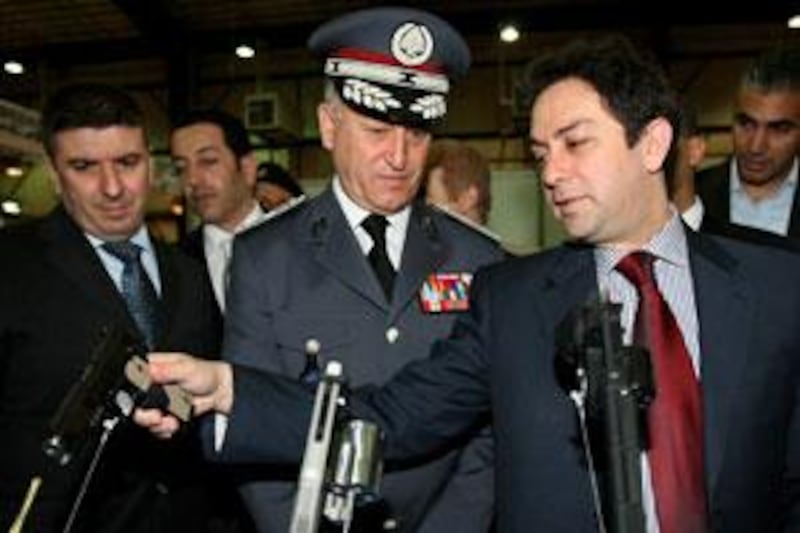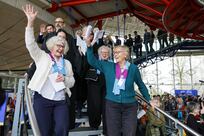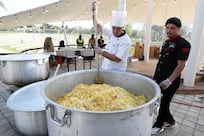BEIRUT // Despite the formation of a national unity cabinet that gives Lebanon its first fully functioning government since 2005, a political fight over who has the authority to mandate reforms within the internal security force has already threatened to derail the effort to modernise the nation's police force.
In a public spat last week, the interior minister, Ziad Baroud, is pitted against Gen Ashraf Rifi, the force's chief of staff, over the attempted dismissal of Lebanon's top police official, Brigadier Gen Antoine Shakkour. Mr Baroud intervened on Friday when Gen Rifi attempted to dismiss Gen Shakkour for failing to implement a series of orders and transfers of personnel issued by Gen Rifi that were intended to begin the process of reforming the force.
After Gen Shakkour refused to follow the orders, Gen Rifi attempted to suspend him without first checking with Mr Baroud or other members of the government. By Friday morning, a compromise had been reached by which Gen Shakkour would remain at his post and implement Gen Rifi's orders, but not before the dispute had embarrassed the security services. According to a top police official, who does not have permission to be identified in the media, the disagreement was a matter more of appearance than substance.
"Rifi has the clear authority to dismiss or reprimand police officers under his command," the officer said. "The law is very clear. But this is not a matter of law; it is a matter of politics. He mishandled the political authority. And in Lebanon no one has the authority to ignore sectarian politics." The officer said, in an account confirmed by other officials, that Mr Baroud was angry that Gen Rifi, a key supporter of the majority movement, attempted to fire a high-ranking member of the opposition, Gen Shakkour, without political consultations. Amal, Hizbollah and other powerful opposition parties immediately began to get behind Gen Shakkour and Mr Baroud was concerned that a standoff would hurt future relations between the parties.
"Rifi might have been within his rights, but Baroud is correct, acting on your own only hurts the atmosphere of reform by alienating the opposition," the officer added. The new government has put reform of Lebanon's poorly trained and equipped police force at the top of its priorities, according to statements from the incoming majority, and although the programme has been greeted with support by the opposition, some civil society supporters say, it is unclear if it will turn into actual progress.
"For the first time since 2005, or even before it as we were occupied by Syria at the time, Lebanon has a government and parliament that is fully functioning," said Nadim Houry, a senior researcher with Human Rights Watch in Beirut. "There have been widespread promises for reforms as a lot of parties appear to be serious about them," he said. "So we're either on the cusp of constructive competition where each party wants to help out to show how it is leading the way, or it will turn out basically destructive, where each party would rather make sure the other parties aren't able to take any credit."
Lebanon's internal security force has long been considered the weak link in Lebanon's security services, and it has a terrible reputation for corruption, ineffectiveness, poor training and sectarian behaviour, according to critics from across Lebanon's political and religious spectrum. One major problem remains the use of sectarian patronage, which allows various parties to stack certain number of supporters within key bureaucratic jobs with little regard for competence. Unlike the Lebanese Armed Forces, which are designed to not be religiously homogenous, the police often assign recruits to certain areas or assignments specifically because of their religious background, which, critics have frequently noted, often leads to sectarian behaviour and corruption.
"There is an opportunity here," Mr Houry said. "And it seems that the stars are somewhat aligned because everyone from every side of the political fights seems to agree that reforms are needed. And with there still being international goodwill to fund ISF reform it is positive. But with everything in Lebanon being sectarian and politicised, how do you touch this area to the satisfaction of everyone?"
@Email:mprothero@thenational.ae





